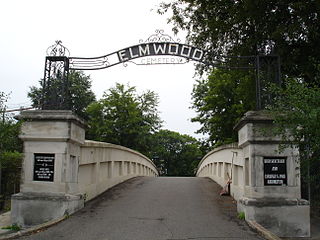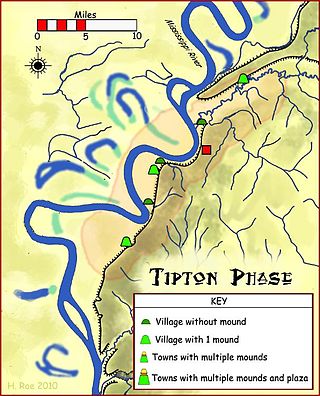Related Research Articles

Memphis is a city in the U.S. state of Tennessee. It is the seat of Shelby County in the southwest part of the state; it is situated along the Mississippi River. With a population of 633,104 at the 2020 U.S. census, Memphis is the second-most populous city in Tennessee after Nashville.

Shelby County is the westernmost county in the U.S. state of Tennessee. As of the 2020 census, the population was 929,744. It is the largest of the state's 95 counties, both in terms of population and geographic area. Its county seat is Memphis, a port on the Mississippi River and the second most populous city in Tennessee. The county was named for Governor Isaac Shelby (1750–1826) of Kentucky. It is one of only two remaining counties in Tennessee with a majority African American population, along with Haywood County.

Bartlett is a city in Shelby County, Tennessee, United States. The population was 57,786 at the 2020 U.S. Census.

Germantown is a city in Shelby County, Tennessee, United States. The population was 41,333 at the 2020 census.

The Cumberland Presbyterian Church is a Presbyterian denomination spawned by the Second Great Awakening. In 2019, it had 65,087 members and 673 congregations, of which 51 were located outside of the United States. The word Cumberland comes from the Cumberland River valley where the church was founded.
Raleigh is a community in north-central Memphis, Tennessee, United States, named for a formerly incorporated town that used to be at its center. Raleigh is bordered on the west by the community of Frayser, on the east by the incorporated suburb of Bartlett, on the south by the Wolf River and Interstate 40, and on the north by the Memphis city limits. The former town of Raleigh was the first county seat of Shelby County, Tennessee.

The People's Grocery lynchings of 1892 occurred on March 9, 1892, in Memphis, Tennessee, when black grocery owner Thomas Moss and two of his workers, Will Stewart and Calvin McDowell, were lynched by a white mob while in police custody. The lynchings occurred in the aftermath of a fight between whites and blacks and two subsequent shooting altercations in which two white police officers were wounded.

Robert Weakley was an American politician who represented Tennessee in the United States House of Representatives from 1809 to 1811.

Elmwood Cemetery is the oldest active cemetery in Memphis, Tennessee. It was established in 1852 as one of the first rural cemeteries in the South.

Dudley McIver DuBose was an American lawyer, Confederate field officer and politician. He rose to the rank of Brigadier General in the Confederate Army during the American Civil War. Afterward, he later served one term in the United States House of Representatives from Georgia, 1871-1873.
Brunswick is an unincorporated community in Shelby County, Tennessee, United States. Brunswick is 7.5 miles (12.1 km) northeast of the center of Bartlett. Since the town is unincorporated, the boundaries are not officially defined, but it is roughly bounded by the Loosahatchie River to the north, Oliver Creek on the east, U.S. Route 70 to the south, and Germantown Road/Craven Road to the west. Initially, Brunswick was a separate community that formed along the Louisville and Nashville Railroad. Many of the same families have lived in Brunswick for multiple generations. Many of these families are buried in Pleasant Hill Cemetery on Brunswick Road, between the railroad tracks and U.S. Route 70.

Cordova is a community in Shelby County, Tennessee, United States. Cordova lies east of Memphis, north of Germantown, south of Bartlett, and northwest of Collierville at an elevation of 361 feet.

Randolph is a rural unincorporated community in Tipton County, Tennessee, United States, located on the banks of the Mississippi River. Randolph was founded in the 1820s and in 1827, the Randolph post office was established. In the 1830s, the town became an early center of river commerce in West Tennessee. Randolph shipped more cotton annually than Memphis until 1840. In 1834, the first pastor of the Methodist congregation was appointed. The fortunes of the community began to decline in the late 1840s due to failed railroad development, an unfavorable mail route and other factors. The first Confederate States Army fort in Tennessee was built at Randolph early in the Civil War in 1861, a second fortification at Randolph was constructed later that same year. During the Civil War, the town was burned down twice by Union Army forces.

Randolph is an unincorporated rural community in Tipton County, Tennessee, United States, located on the banks of the Mississippi River. The lands of the Mississippi River Basin were inhabited by Paleo-Indians and later Native American tribes of the Mississippian culture for thousands of years. The Tipton phase people and the Chickasaw Indian tribe populated the Mississippi River valley near Randolph during the Mississippian period. In 1541, Spanish explorer Hernando de Soto crossed the Mississippi River at or near Randolph. French explorer Cavelier de La Salle built the first French fortification at or near Randolph on his 1682 canoe expedition of the Mississippi River.

Old Broad Street Presbyterian Church and Cemetery is a historic church on Broad and Lawrence Streets in Bridgeton, Cumberland County, New Jersey, United States. It was built in 1792 and added to the National Register of Historic Places in 1974. The church and cemetery are also listed on both the New Jersey Register
Robert King Byrd was an American soldier and politician. A Southern Unionist, he commanded the Union Army's First Tennessee Infantry during the Civil War, and saw action at Cumberland Gap, Stones River, and in the Knoxville and Atlanta campaigns. He represented his native Roane County at the pro-Union East Tennessee Convention on the eve of the war in 1861, and at the Nashville convention that reorganized the Tennessee state government toward the end of the war in January 1865.

Larkinsville is a historic village and populated place in Jackson County, Alabama, United States. Founded in 1828 by David Larkin, it was incorporated into the nearby City of Scottsboro in the late 1960s. In 1895, Larkinsville had a population of 216. As late as 1940, the population was 320 according to the U.S. Census. The historic Blue Spring Cemetery is located one mile southwest of the old village center.

Byrd Hill was a slave trader of Tennessee and Mississippi prior to the American Civil War. Byrd Hill has been described as one of the "big four" slave traders in the centrally located city of Memphis on the Mississippi River. Hill was partners for a time with Nathan Bedford Forrest and is believed to have resold six of the Africans illegally trafficked to the United States on the Wanderer in 1859. Hill also made a fleeting appearance in Harriet Beecher Stowe's A Key to Uncle Tom's Cabin.

James McMillin was an American tavern keeper and slave trader of Kentucky. He was implicated in more than one case of attempted kidnapping into slavery. In 1857 Memphis slave trader Isaac Bolton shot McMillin several times over an unprofitable trade. McMillin died hours later in the home of Memphis slave trader Nathan Bedford Forrest. His last name is very often spelled McMillan or McMillen; this article uses the spelling that appears on his grave marker and hometown newspaper.

The Bolton–Dickens feud was a bloody conflict in Tennessee in the United States from 1856 to 1870. The principals were former business partners in the extensive multi-state slave trading firm, Bolton, Dickens & Co. In what amounted to a West Tennessee gangland war, many as 19 people were ultimately killed, including several unidentified former slaves. The conflict began when Isaac Bolton killed another slave trader over a business deal gone bad. When the cost of getting him acquitted was put into the Bolton & Dickens business accounts, Thomas Dickens protested fiercely and the firm was ultimately dissolved. Following the American Civil War, as various parties requested in court that firm's accounts be settled and remaining funds distributed, tensions rose again. There was a raid on Thom Dickens' house in which two of his servants were killed. Then Thom Dickens walked up to Wade H. Bolton in broad daylight and shot him. Dickens was acquitted at trial, but was himself shot and killed a year later by persons unknown. Dickins' son died shortly thereafter under unclear circumstances, effectively concluding the violence.
References
- 1 2 United States Congress (1868). House Documents, Otherwise Publ. as Executive Documents: 13th Congress, 2d Session-49th Congress, 1st Session. p. 12.
- ↑ Ellen Davies-Rodgers, Along the Old Stage-Coach Road : Morning Sun and Brunswick, Shelby County, Tennessee, Plantation Press, Brunswick, Tenn. 1990 - OCLC 25084120
- 1 2 Clifton, Angie (October 2010). ARCHITECTURAL/HISTORICAL ASSESSMENT FOR NEW CANADA ROAD, FROM I-40 TO STATE ROUTE 1 (US 70) IN LAKELAND, SHELBY COUNTY, TENNESSEE (Report). City of Lakeland, Tennessee. p. 17. TDOT Pin No. 107036.
- ↑ "Our History". Morning Sun Cumberland Presbyterian Church. Retrieved 2023-10-27.
- ↑ "Morning Sun—Avalanche Correspondence". Memphis Avalanche. 1886-03-24. p. 2. Retrieved 2023-10-29.